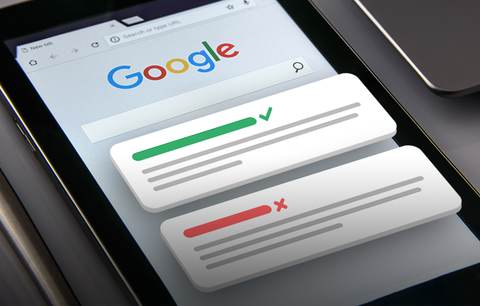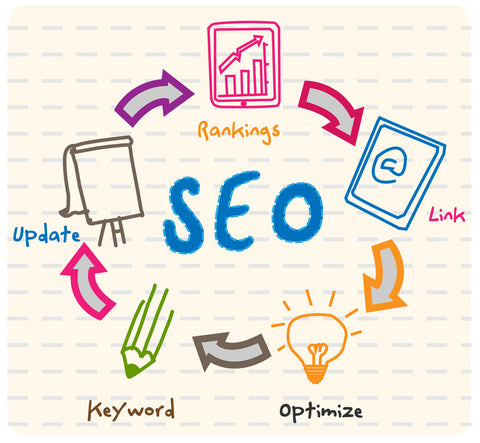
We’re excited to introduce a powerful new addition to Smart SEO — the SEO Audit page. This feature builds on our existing Meta Tags functionality and brings advanced tools, AI-powered workflows, and detailed SEO checks to help you fully optimize your store’s content.
In this article, we’ll walk you through what’s new, what’s changed, and how to take advantage of all the new capabilities — including AI-generated keywords, full product data editing, and a more comprehensive SEO scoring system.
What’s the difference between Meta Tags and SEO Audit?
If you've been using Smart SEO already, you're familiar with the Meta Tags page - where you can edit your meta titles, meta descriptions, and set a focus keyword for each product, collection, or page.
That page is still available, and you can continue managing those core SEO elements there.
The new SEO Audit page, however, takes things to the next level. In addition to everything available in the Meta Tags section, the SEO Audit page includes:
-
AI-generated focus keywords
-
Full editing of product title, description, and handle
-
AI handles generation
-
Ability to update SKU and barcode for each product variant
-
Expanded SEO score with detailed checks
Think of the SEO Audit as your all-in-one workspace for optimizing not just your meta tags, but the entire product listing.
Edit Shopify Fields Without Leaving Smart SEO
From the SEO Audit page, you can now edit key Shopify data directly:
-
Product title, description, and handle
-
Meta title, meta description, and focus keyword
-
SKU and barcode for each variant
No more jumping back and forth between Smart SEO and the Shopify Admin - everything is in one place.
Expanded SEO Score Metrics: What’s Evaluated?
Our updated scoring system now checks for more than just meta tags recommendations. It now covers:
📄 Content
-
Title lenght
-
Whether the title contains the focus keyword
-
Whether the title starts with the focus keyword
-
Whether the description has at least 200 characters
-
Whether the description contains the focus keyword
-
If all product variants have a SKU
-
If all product variants have a barcode
🖼 Images
-
If all product images have alt tags
🔗 URL Handle
-
Whether the focus keyword is present in the URL
-
Handle length
Each of these contributes to your SEO score, helping you identify and fix issues quickly.
Note that the SEO score is only visible to you. Google doesn’t use it or see it. It’s simply a tool to guide you.
Focus Keyword
What Is a Focus Keyword?
A focus keyword is the main word or phrase that describes what your product is about and what you want it to rank for in Google.
Think of it like this: If someone goes to Google and types something in, what exact words would they use to try to find your product?
📌 Example:
Let’s say you’re selling a product called “Red Summer Dress”.
Some possible focus keywords for this product could be:
- red dress
- summer dress
- red summer dress (more specific and often better for targeting)
These keywords should ideally appear in your title, description, meta title, meta description and URL handle.
Short and Long Keywords
When doing SEO, it’s helpful to understand the difference between short-tail and long-tail keywords:
| Type | Example | Meaning |
|---|---|---|
| Short-tail | dress |
Very broad, high competition |
| Long-tail | red summer dress |
More specific, easier to rank for |
Short keywords (like "dress") are searched a lot, but they're also very competitive. Long keywords (like "red summer dress" or "red summer dress for women") have less competition and are more likely to bring in visitors who are actually looking for exactly what you're selling.
That’s why it's recommended to choose clear, specific keywords for your products.
AI-Generated Keywords
Not sure what keyword to use? From the SEO Audit page, you can now generate a focus keyword using AI for each product, collection, or page.
This makes it easier to get started — especially if you’re unsure what customers might be searching for.
However, focus keywords are still intended to be chosen thoughtfully and manually when fine-tuning SEO for high-priority products. This is also the reason why there is no option to AI generate focus keywords in bulk.
What If I Don’t Want to Set Focus Keywords Manually?
Focus keywords are usually chosen based on keyword research — the process of finding out what people are actually searching for on Google. This helps you pick words and phrases that are more likely to attract the right customers.
If you work with an SEO expert or agency, keyword research is often one of the first steps they take when optimizing your store.
That said, manually setting focus keywords is intended for fine-tuning specific products where you want full control over what the page ranks for. It’s a precision tool — not something you need to use for every product.
If you don’t want to do this manually or don’t have time to research and assign keywords individually, that’s absolutely okay - Smart SEO will automatically use the product title as the default focus keyword when none is set.
This allows the SEO Audit tool to evaluate your product’s content, meta tags, and other SEO signals without requiring extra input from you.
It’s a practical approach for stores with large catalogs and works well if your priority is speed and efficiency.
Important:
The focus keyword field is intentionally designed for manual use when you want to go deeper — especially for bestsellers or more competitive products.
If you choose not to set a custom keyword, your SEO score may be slightly lower — but that’s expected. The scoring system is meant to highlight areas for improvement, not penalize automation.
And just to clarify: your SEO score is only visible to you — Google doesn’t see or use it. It’s simply a tool to help you improve your content where it matters most.
Do I Really Need to Use Focus Keywords?
It depends on your goals.
If you’re looking to improve rankings for specific, high-value products, then yes — setting a clear, targeted focus keyword and aligning your content around it can help boost your visibility in search results.
But if your main goal is to optimize your catalog efficiently, letting Smart SEO use the product title as the default keyword is totally acceptable — even if the SEO score isn’t perfect.
Focus keywords are a tool for precision — not a requirement for every product. Use them when they add value, and feel free to skip them when speed and scale matter more.
Final Thoughts
The SEO Audit page is now the most powerful way to manage your on-page SEO in Smart SEO.
While the original Meta Tags section is still available for editing titles, descriptions, and focus keywords, we highly recommend trying the new SEO Audit feature.
As always, our support team is here if you need guidance on how to get started or make the most of these new tools.



